Coronavirus updates: China reports downfall, Europe sees outbreak rapidly growing
China has reported an overall drop in its new cases of coronavirus infections, while much of the rest of the world continues to report increasingly more cases, with governments taking stricter precautionary measures to contain the spread of the virus.
China’s National Health Commission said on Monday that the mainland had confirmed 16 new cases on Sunday, down from 20 a day earlier.
The latest figures bring the total number of confirmed cases in the country so far to 80,860.
Of the new infected cases, 12 were imported infections, according to the commission. And the remaining four infections all took place in Wuhan, the epicenter of the Chinese outbreak and the capital of Hubei Province.
Monday marked the 11th consecutive day that Hubei recorded zero new infections outside of Wuhan.
Major cities, including the capital, Beijing, and Shanghai, accounted for the major number of cases involving infected travelers arriving from overseas.
This prompted the government to tighten checks on incoming travelers, with Beijing requiring anyone arriving from abroad to be transferred to city quarantine facilities for 14 days, starting Monday.
As of Sunday, the total death toll across China reached 3,213, up by 14 from the previous day.
Beyond the borders of China, the novel coronavirus, dubbed SARS-CoV-2, infected 10,955 on Sunday, up from 9,751 on Saturday, according to the World Health Organization (WHO). It was the first time new cases topped 10,000.
Europe, new epicenter of coronavirus
WHO declared Europe the epicenter of the pandemic after the continent started reporting more daily cases than China did at the peak of its outbreak.
Italy has been recording the highest numbers of infections and deaths so far.
Staggering rise in deaths in Italy
On Sunday, Italy confirmed 368 new deaths, bringing the total to 1,809.
The number of infections also rose to 24,747, from 21,157 a day earlier, even though tens of millions of Italians remained under lockdown.
Spain deploys soldiers amid state of emergency
Spain put its 47 million people under a nationwide lockdown, deploying soldiers to patrol the streets after Prime Minister Pedro Sanchez declared a state of emergency.
The country said Monday it was mulling the closure of its borders and that the issue would be discussed with other EU states.
The country recorded 2,000 new cases and more than 100 deaths over the past 24 hours, officials said Sunday.
The new figures raised Spain’s infections to 7,753, and its death toll to 288.
France preparing confinement order
Meanwhile, France is preparing an order that would put its 67-million population under partial lockdown to combat the spread of the disease, official sources said on Sunday.
Reuters cited an unnamed source as saying that the confinement would begin at midnight on Tuesday. It was not clear how long the confinement would last.
Jerome Salomon, the head of the country's health service warned Monday that the outbreak was "deteriorating very fast" and that the number of cases "double every three days."
French health officials on Sunday reported 29 additional deaths, which brought the total death toll to 120. Health Minister Olivier Veran said that that was the biggest one-day increase in the country since the outbreak had begun in January.
Around 900 more infections were recorded in the past 24 hours, taking the total to 5,400 since January, according to Veran.
Germany closes borders
German Interior Minister Horst Seehofer said the government would partially close the borders with France, Switzerland, Austria, Luxembourg, and Denmark as part of measures to stem the spread of the virus. Seehofer said the new measures would take effect early Monday morning.
He said people “without a valid reason to travel will no longer be allowed to enter and leave” Germany. The minister, however, said that German citizens in the neighboring countries would be allowed back in.
Health officials had confirmed nearly 4,000 infections with the virus by Saturday, and authorities have reported 11 deaths.
Dominican Republic suspend flights from EU
The Dominican Republic, in the Caribbean, said it suspended all flights from Europe and the arrival of all cruise ships for a month from Monday morning.
South Korea reports 74 new cases
Elsewhere, South Korea on Monday diagnosed 74 more people with coronavirus infection. That brought the total number of cases to 8,236, with 75 deaths, according to health officials.
New infections have been on a declining course, with the latest figures well below a peak of 909 in late February.
Health officials, however, warned that “sporadic outbreaks” could continue in the hardest-hit areas, such as the southeastern city of Daegu.
India bans gatherings
India has banned gatherings of more than 50 people as it is witnessing a sharp surge in its infection cases.
Health officials have reported a total of 114 infections along with two deaths so far.
‘We don’t want to be Italy:’ New Zealand adopts precautionary measures
New Zealand’s Prime Minister Jacinda Ardern has ordered a ban on both indoor and outdoor gatherings of more than 500 people to curb the spread of the virus.
“We don’t want to be Italy,” the prime minister said, unveiling the measures on Monday.
New Zealand has reported eight cases of infection.
South, Central America ramp up measures
South and Central American nations ramped up measures to tackle the pandemic, after Guatemala reported its first death from the outbreak.
Panama imposed restriction on the entry of non-resident foreigners, and Honduras closed its borders to passenger traffic for a week.
Argentina and Peru also announced border closures on Sunday. President Alberto Fernandez said in a televised press conference that public and private school classes would also be suspended until the end of the month.
Spread in Africa concerns scientists
As coronavirus cases explode across the world, scientists raise concerns about the spread of the virus to over-populated African countries with weak health systems.
“We really have no idea how COVID-19 will behave in Africa,” said Glenda Gray, the president of the South African Medical Research Council.
Last month, WHO also expressed concern about a viral outbreak in Africa.
US campus protests continue despite mass arrests
VIDEO | No tech for apartheid Israel
VIDEO | Radio-diagnostic tools
VIDEO | Pakistan observes anniversary of Nakba with anti-Israel protests
European trio warned after deploying warplanes to defend Israel against Iran op.
Israel removal from our land inevitable: Haniyeh on Nakba anniv.
VIDEO | Gazans search rubble for survivors after Israeli strikes on Jabalia
VIDEO | Nakba Day anniversary



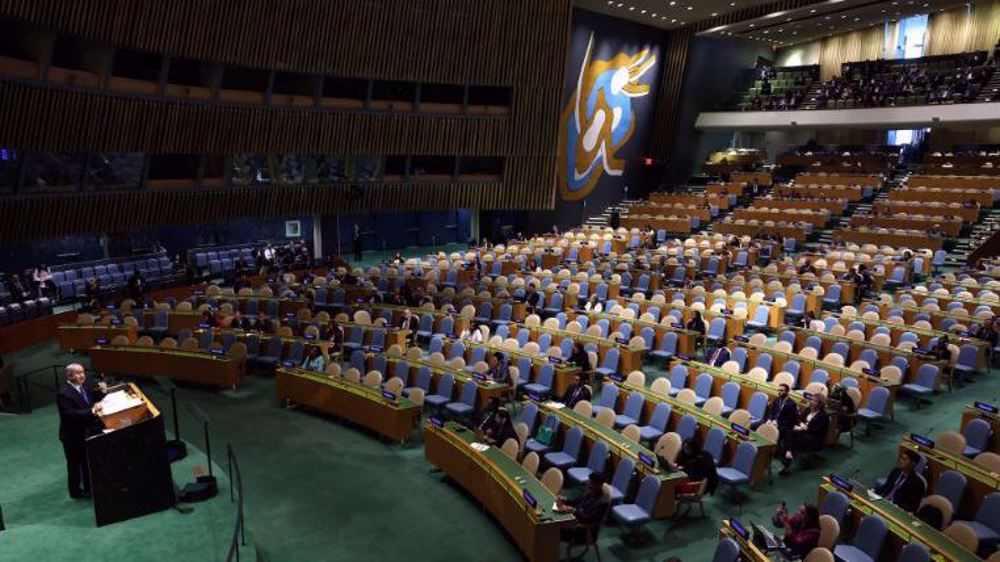
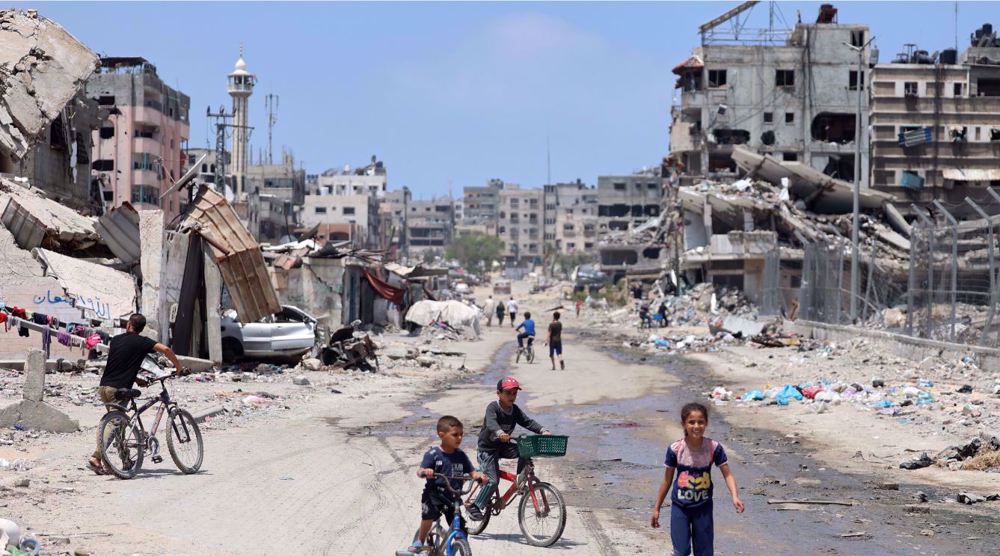
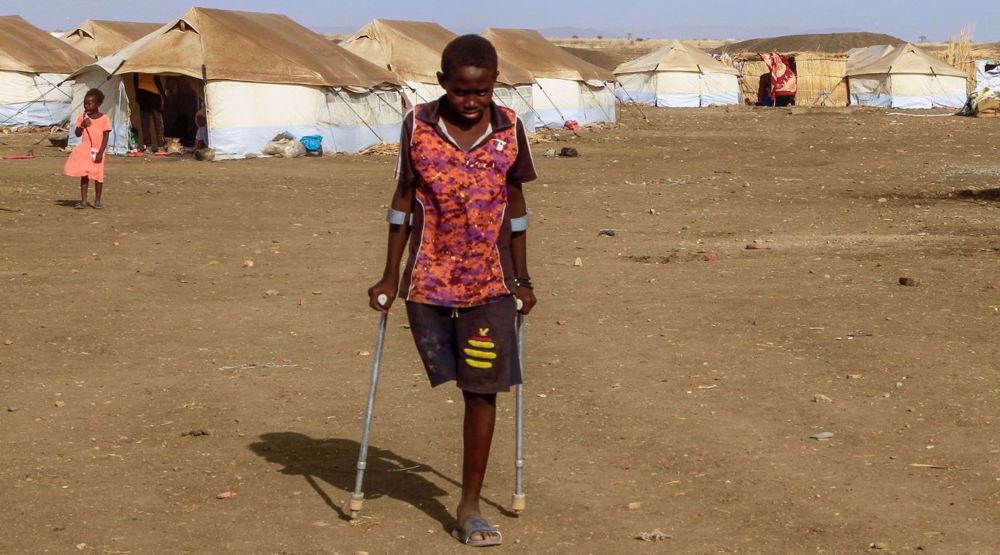



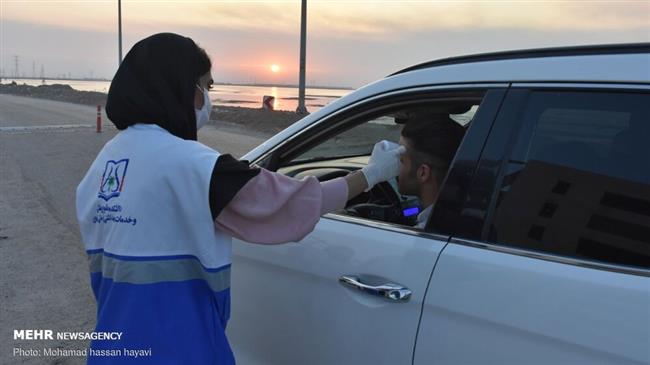
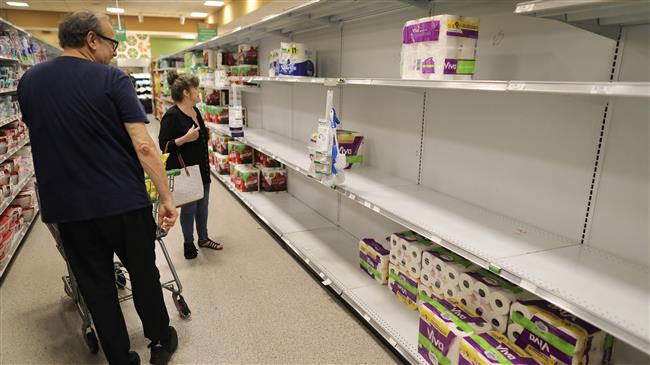

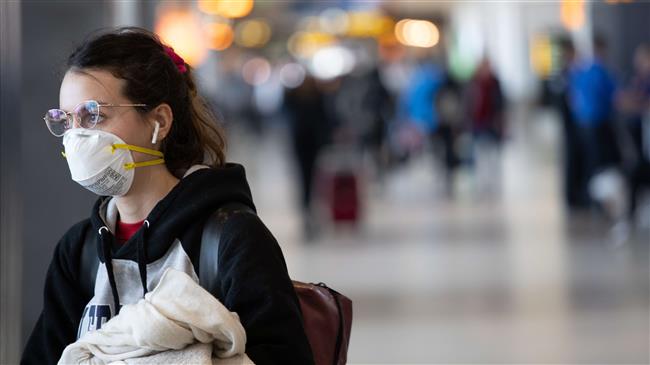
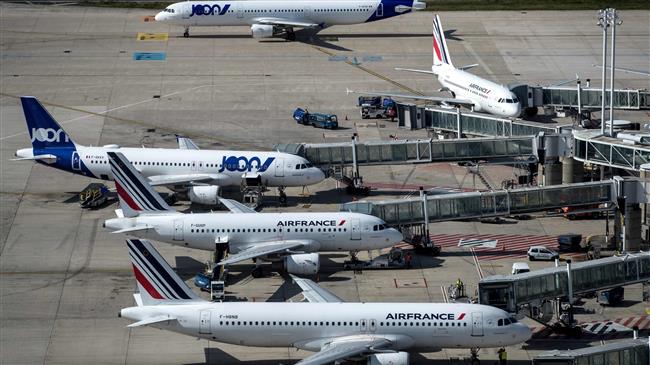

 This makes it easy to access the Press TV website
This makes it easy to access the Press TV website